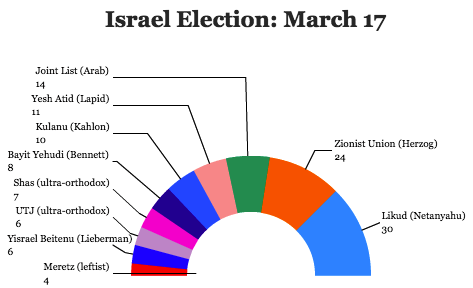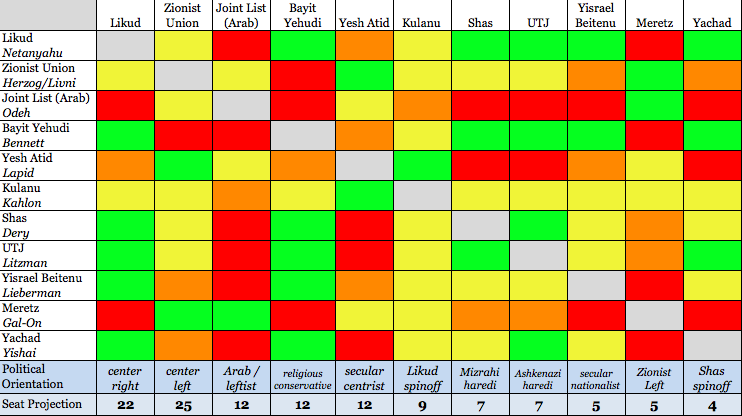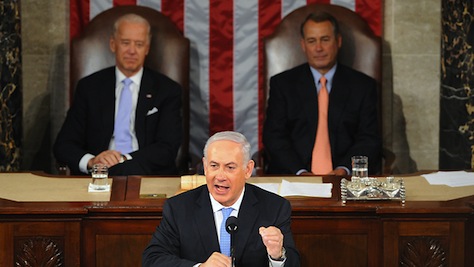As the results started to trickle in early Wednesday morning (Jerusalem time), the world started to get a better sense of the verdict of Israeli voters in the country’s second general election in three years.![]()
Exit polls that initially showed the two leading camps tied turned out to be wrong — the results showed that Israeli prime minister Benjamin Netanyahu’s center-right Likud (הַלִּכּוּד) won a bloc of 30 seats in the Knesset (הַכְּנֶסֶת), Israel’s unicameral parliament.
That’s in stark contrast to polls that showed that the Zionist Union (המחנה הציוני), a merger between Isaac Herzog‘s center-left Labor Party (מפלגת העבודה הישראלית) and a bloc of moderates led by former justice minister Tzipi Livni, would emerge as the largest party. It instead won just 24 seats.
So what do these election results tell us? Continue reading Israeli election results: eight things we know after Tuesday’s vote



